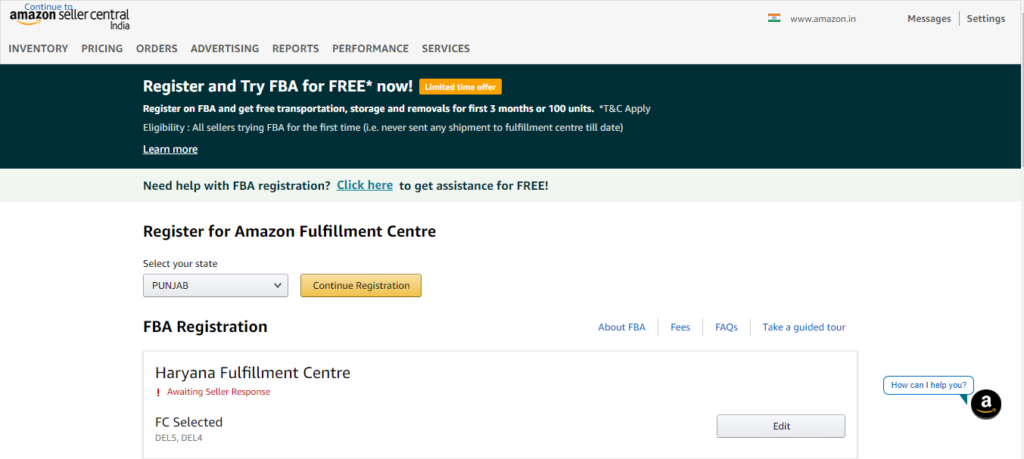What are Amazon FBA Charges
Introduction
What are Amazon FBA Charges? In the world of e-commerce, Amazon stands as a behemoth, offering unparalleled reach and convenience for sellers to reach customers worldwide. One of the most popular services offered by Amazon is Fulfillment by Amazon (FBA), a program that allows sellers to store their products in Amazon’s fulfillment centers. While FBA offers numerous benefits, it’s essential for sellers to understand the associated costs to make informed decisions about their business. In this guide, we’ll delve into the intricacies of What are Amazon FBA Charges?
What is Amazon FBA?
Fulfillment by Amazon (FBA) is a service provided by Amazon that enables sellers to store their products in Amazon’s fulfillment centers. When a customer places an order, Amazon picks, packs, and ships the product on behalf of the seller. Additionally, Amazon handles customer service and returns for FBA orders, streamlining the entire fulfillment process for sellers.
Understanding FBA Fees
Fulfillment Fees: To know what are amazon fba charges, you have to read this post to understand amazon fba charges. These fees cover the costs associated with picking, packing, and shipping orders. They are based on the size and weight of the product, as well as the shipping method selected by the customer. Fulfillment fees vary depending on whether the product is standard-size or oversize, and whether it’s a media item or a non-media item.
Inventory Storage Fees: Amazon charges sellers for storing their products in its fulfillment centers. Inventory storage fees are calculated based on the volume of space occupied by the seller’s products and are assessed monthly. What are amazon fba charges? It’s important for sellers to manage their inventory levels effectively to avoid excessive storage fees.
Long-Term Storage Fees: In addition to standard inventory storage fees, Amazon imposes long-term storage fees on products that have been stored in its fulfillment centers for an extended period. These fees apply to products that have been in storage for more than 365 days and are charged on a per-unit basis.
Referral Fees: Amazon charges referral fees on each item sold through its platform. These fees are calculated as a percentage of the total sale price (including shipping costs) and vary depending on the product category. Referral fees contribute to the cost of using Amazon’s platform and services.
Optional FBA Services: Amazon offers various optional services to sellers, such as labeling, prep services, and removal orders. These services incur additional fees, but they can help streamline the selling process and improve efficiency for sellers.
If you are going to move your inventory into amazon FBA than you have question in your mind that What are Amazon FBA Charges? so here is proof that if you are new amazon seller than all the amazon charges for amazon FBA are free for you for next 3 months.
Optimizing FBA Costs
While Amazon FBA charges can add up, there are several strategies sellers can employ to optimize their costs and maximize profitability so you should know What are Amazon FBA Charges:
- Optimize Inventory Levels: Monitoring inventory levels closely and avoiding overstocking can help minimize storage fees.
- Choose the Right Products: Selecting products with high profit margins can help offset the costs associated with FBA fees.
- Utilize Amazon’s Tools: Amazon provides sellers with tools and reports to help them analyze their FBA costs and identify areas for optimization.
- Consider Multi-Channel Fulfillment: Sellers can use Amazon’s Multi-Channel Fulfillment service to fulfill orders from other sales channels, leveraging Amazon’s infrastructure while expanding their reach.
Contact Us
Dear all, If you have any question or query about What are Amazon FBA Charges? than feel free to contact us. We will help you asap.
Watch Now
If you want to learn more about What are Amazon FBA Charges? than you can watch our video. We have uploaded detailed video on youtube.

How to clear Amazon Seller Negative Balance
You can also read our previous blog post on How to Clear Amazon Seller Account Negative Balance.
Conclusion
It is very important to, What are Amazon FBA Charges so Amazon FBA offers sellers a convenient and efficient way to fulfill orders and reach customers worldwide. However, it’s essential for sellers to understand the associated costs and fees to make informed decisions about their business. By optimizing inventory levels, choosing the right products, and leveraging Amazon’s tools, sellers can effectively manage their FBA costs and maximize profitability.
FAQs: Understanding Amazon FBA Charges
1. What exactly are Amazon FBA charges? Amazon FBA (Fulfillment by Amazon) charges refer to the fees associated with using Amazon’s fulfillment services to store, pack, and ship your products to customers. These charges cover various aspects of the fulfillment process, including storage fees, order handling fees, and shipping fees.
2. What are the main components of Amazon FBA charges? The main components of Amazon FBA charges include:
- Storage fees: Charges for storing your inventory in Amazon’s fulfillment centers.
- Fulfillment fees: Charges for picking, packing, and shipping your products to customers.
- Additional fees: These may include long-term storage fees, removal fees, and other incidental charges.
3. How are Amazon FBA fees calculated? Amazon FBA fees are calculated based on factors such as the size and weight of your products, the time of year, and the fulfillment services you use. Fees may vary for standard-size and oversize items, as well as for products stored for an extended period.
4. Can you give examples of specific Amazon FBA charges? Sure, here are a few examples:
- Storage fees: These are typically charged per cubic foot of storage space used by your inventory.
- Fulfillment fees: These are charged per unit based on factors such as size, weight, and shipping destination.
- Long-term storage fees: These are charged for inventory stored in Amazon’s fulfillment centers for an extended period.
5. Are there any hidden costs associated with Amazon FBA? While Amazon FBA charges are transparent and outlined in Amazon’s fee schedule, it’s essential to consider other factors that may affect your overall costs, such as product returns, inventory management, and advertising expenses.
6. How can I estimate my Amazon FBA costs? Amazon provides tools such as the FBA Revenue Calculator, which allows sellers to estimate their FBA fees based on product details such as size, weight, and selling price. Additionally, sellers can review their Seller Central account for detailed fee breakdowns.
7. Are there any ways to reduce Amazon FBA charges? Yes, there are several strategies to help minimize Amazon FBA charges, including optimizing your product packaging to reduce shipping costs, managing your inventory levels effectively to avoid long-term storage fees, and taking advantage of Amazon’s FBA programs and promotions.
8. What happens if I don’t pay my Amazon FBA fees? Failure to pay Amazon FBA fees can result in penalties, including the suspension or termination of your seller account. It’s crucial to stay informed about your fee obligations and ensure timely payment to avoid any disruptions to your business.
9. Where can I find more information about Amazon FBA charges? For detailed information about Amazon FBA charges, including current rates and fee schedules, sellers can visit the Amazon Seller Central website or consult with Amazon Seller Support for personalized assistance.
10. How do Amazon FBA charges compare to other fulfillment options? Amazon FBA charges may vary depending on factors such as product size, weight, and storage duration. Comparing Amazon FBA fees to other fulfillment options, such as third-party logistics providers or self-fulfillment, can help sellers determine the most cost-effective solution for their business needs.
